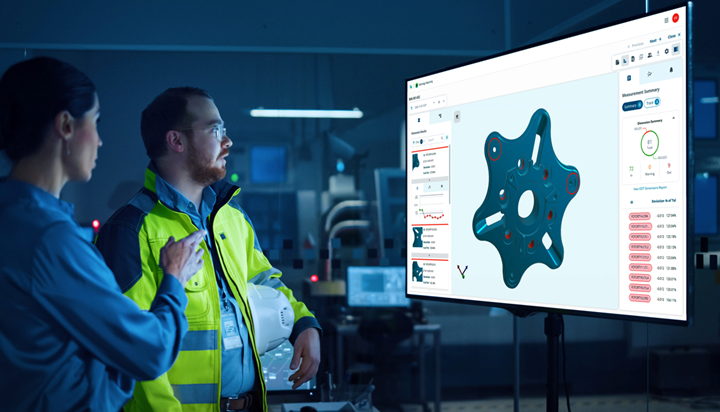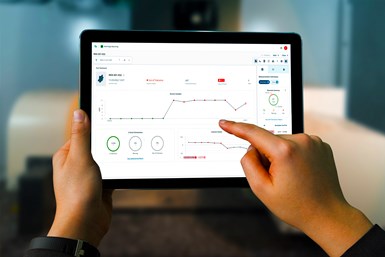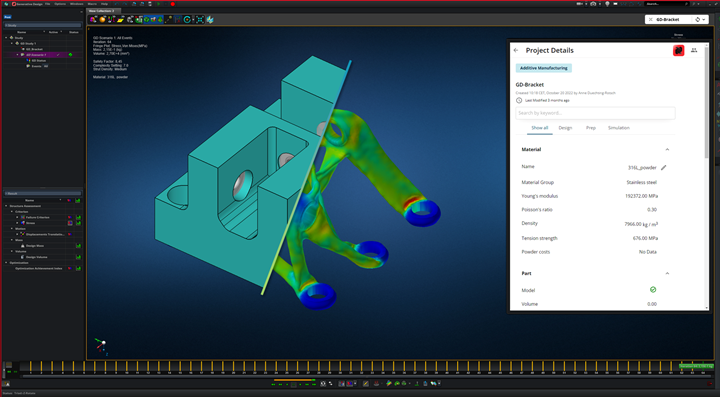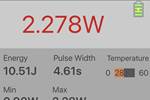Nexus, Hexagon's Digital Reality Platform Offers Collaboration Solutions Congruent With AM Needs
Nexus, Hexagon’s open, digital reality platform, enables collaboration among manufacturers and promotes the freedom to innovate using an array of digitalized tools.
More than any other manufacturing process, additive manufacturing (AM) demands collaboration among stakeholders concerning part design, production, operations and quality. Hexagon Manufacturing Intelligence (Hexagon), a company specializing in digital reality solutions, recently unveiled Nexus, a digital platform providing manufacturers a cohesive space to collaborate for optimized innovation and the more successful use of AM.

Nexus Metrology Reporting app depicted in real-time use for its collaboration and presentation capabilities. Photo credit: Hexagon
I attended Hexagon’s virtual launch event detailing the new platform. According to the company, its aim for Nexus is to foster an open platform complete with digital resources to connect equipment, data and processes for real-time distribution across product lifecycles. By addressing design and manufacturing issues in an accessible and accelerated manner, Hexagon hopes to assist otherwise siloed teams in strengthening collaborative resources.
The resources Nexus provides are housed in a cloud-based platform. Ready-to-use designs and engineering, production and metrology software applications reside in the Nexus portfolio for customers to pick and choose the technology best suited to their needs.
Inside the Tech Hub
At present, Nexus has developed four readily available, digital solutions (in the form of apps) to benefit AM as well as other manufacturing operations. They are:

The Nexus Metrology Reporting app captured using data sharing abilities via trend plot. Photo credit: Hexagon
- Metrology Reporting: This third-party app focuses primarily on the measurement of data. Hexagon says the app grants companies immediate access to reports on quality control data (using any chosen mode of equipment) to view trends and detect discrepancies. Manufacturers can create interactive, CAD-based reports to compile trend plots, compliance documents, and real-time data to share among team members along with other manufacturers.
- Materials Connect: This app functions as a cloud-based library complete with material data offerings for manufacturers to not only manage material information but also add material test data as it becomes available. This further extends in assisting behavior models when customers utilize Computer Aided Engineering (CAE) workflows.
- Materials Enrich: Employing machine learning capabilities and material behavior simulations, the third Nexus app offers users their preference when selecting optimal project materials. Before selection, the chosen material may or may not have been previously measured or experimented with. The app provides customers the ability to digitally test and brainstorm (with an array of material options) to obtain potential outcomes before committing blindly. Hexagon says the goal for this app is to improve material performance, lessen material waste and ensure long-term product sustainability.
- Design for Additive Manufacturing (DFAM): This solution directly services AM. The app promotes effective collaboration when developing metal 3D printed parts. Currently, the pre-figured solution prepares prints that use laser powder bed fusion process. This app’s interface connects Hexagon’s multiple DFAM-related software programs via the cloud, to easily manage additive projects and connect members of different teams. The app aims to advance build design and geometry for more effective AM.

Nexus’ DFAM app digitally maps and generates designs with complex geometries suited to AM. Photo credit: Hexagon
Related Content
-
ActivArmor Casts and Splints Are Shifting to Point-of-Care 3D Printing
ActivArmor offers individualized, 3D printed casts and splints for various diagnoses. The company is in the process of shifting to point-of-care printing and aims to promote positive healing outcomes and improved hygienics with customized support devices.
-
Additive Manufacturing Production at Scale Reveals the Technology's Next Challenges: AM Radio #28
Seemingly small issues in 3D printing are becoming larger problems that need solutions as manufacturers advance into ongoing production and higher quantities with AM. Stephanie Hendrixson and Peter Zelinski discuss 6 of these challenges on AM Radio.
-
3D Printed Cutting Tool for Large Transmission Part: The Cool Parts Show Bonus
A boring tool that was once 30 kg challenged the performance of the machining center using it. The replacement tool is 11.5 kg, and more efficient as well, thanks to generative design.












